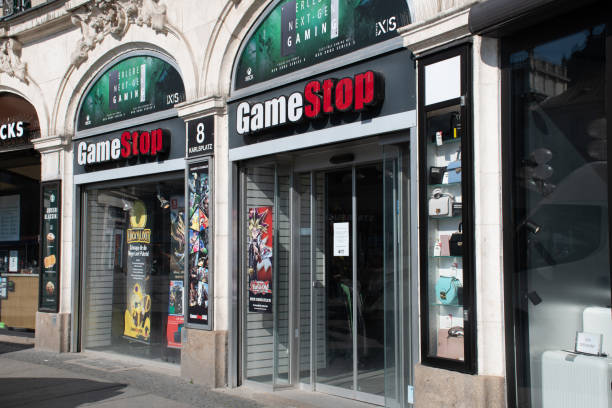Introduction to GameStop Stock
In recent years, the name “GameStop” has become synonymous with the phenomenon of retail investors challenging the status quo of Wall Street. What began as a struggling brick-and-mortar video game retailer transformed into a battleground between individual investors and institutional hedge funds. This article delves into the unprecedented surge of GameStop stock and the factors that led to this extraordinary event.
GameStop: A Brief History
GameStop Corporation, founded in 1984, started as a small retailer of video games and consoles. Over the years, it expanded its footprint across the United States, becoming a dominant player in the gaming industry. However, with the digitalization of gaming and the rise of online marketplaces, GameStop faced significant challenges, leading to declining sales and store closures.
The Rise of GameStop Stock in 2021
The year 2021 witnessed an astonishing turn of events for GameStop’s stock. In late January, its share price skyrocketed from single digits to over $300 within a matter of days, shocking investors and financial analysts worldwide. This meteoric rise captivated the attention of both Wall Street and Main Street.
Factors Contributing to GameStop’s Stock Surge
Reddit and WallStreetBets
One of the primary catalysts behind the GameStop frenzy was a Reddit community called WallStreetBets. This online forum, comprising millions of individual investors, identified GameStop as an undervalued stock with high short interest.
Short Squeeze
Hedge funds had heavily shorted GameStop stock, betting on its decline. However, the coordinated buying efforts of retail investors, fueled by social media hype, triggered a short squeeze, forcing short sellers to cover their positions at significantly higher prices.
Social Media Frenzy
The power of social media played a pivotal role in amplifying the GameStop saga. Tweets, memes, and online discussions on platforms like Twitter and Discord fueled the momentum, attracting even more retail investors to join the movement.
The Role of Retail Investors
Retail investors, often portrayed as the underdogs in the world of finance, played a central role in the GameStop saga. Empowered by commission-free trading apps and online communities, they banded together to challenge the dominance of institutional investors and hedge funds.
Wall Street’s Reaction
The unprecedented surge in GameStop stock sent shockwaves throughout Wall Street. Hedge funds that had shorted the stock suffered massive losses, prompting calls for regulatory intervention and closer scrutiny of market dynamics.
GameStop Stock: Volatility and Speculation
The volatility surrounding GameStop’s stock reached unprecedented levels during the peak of the frenzy. Wild price swings, fueled by speculative trading and emotional investor sentiment, underscored the unpredictable nature of financial markets.
Regulatory Scrutiny
The GameStop saga prompted regulatory bodies to examine the role of social media and online trading platforms in market manipulation. Questions were raised about the fairness and transparency of the financial system, leading to calls for reforms to address systemic risks.
The Aftermath: Lessons Learned
As the dust settled, the GameStop saga left behind valuable lessons for investors, regulators, and market participants. It highlighted the power of collective action, the impact of social media on financial markets, and the need for greater transparency and accountability.
Future Outlook for GameStop Stock
Despite the volatility and controversy surrounding GameStop, the company’s future remains uncertain. While some view it as a symbol of retail investor empowerment, others question its long-term viability in an increasingly digital gaming landscape. The evolving dynamics of the retail investing revolution and regulatory landscape will shape GameStop’s trajectory in the years to come.
Conclusion
The GameStop saga represents a watershed moment in financial history, where retail investors challenged the traditional norms of Wall Street. While the frenzy may have subsided, its impact reverberates across the investment community, sparking discussions about market integrity, regulation, and the democratization of finance.
Unique FAQs
Q. What sparked the surge in GameStop stock?
A. The surge in GameStop stock was sparked by a combination of factors, including the Reddit community WallStreetBets identifying it as a potential target, high short interest from hedge funds, and coordinated buying efforts by retail investors.
Q. Did the GameStop saga result in any regulatory changes?
A. The GameStop saga prompted regulatory scrutiny and calls for reforms to address concerns about market manipulation, the role of social media in investing, and the fairness of the financial system.
Q. What lessons can investors learn from the GameStop saga?
A. Investors can learn the importance of staying informed, conducting thorough research, and understanding the risks associated with speculative trading and market frenzy.
Q. Is GameStop still a viable investment option?
A. The future outlook for GameStop remains uncertain, as it continues to face challenges in a rapidly evolving gaming industry. Investors should carefully assess its prospects and consider diversifying their portfolios.
Q. How has the GameStop saga impacted the broader investment landscape?
A. The GameStop saga has sparked discussions about retail investor empowerment, market dynamics, and the role of technology in shaping financial markets. It has also highlighted the need for greater transparency and accountability in the investment ecosystem.

